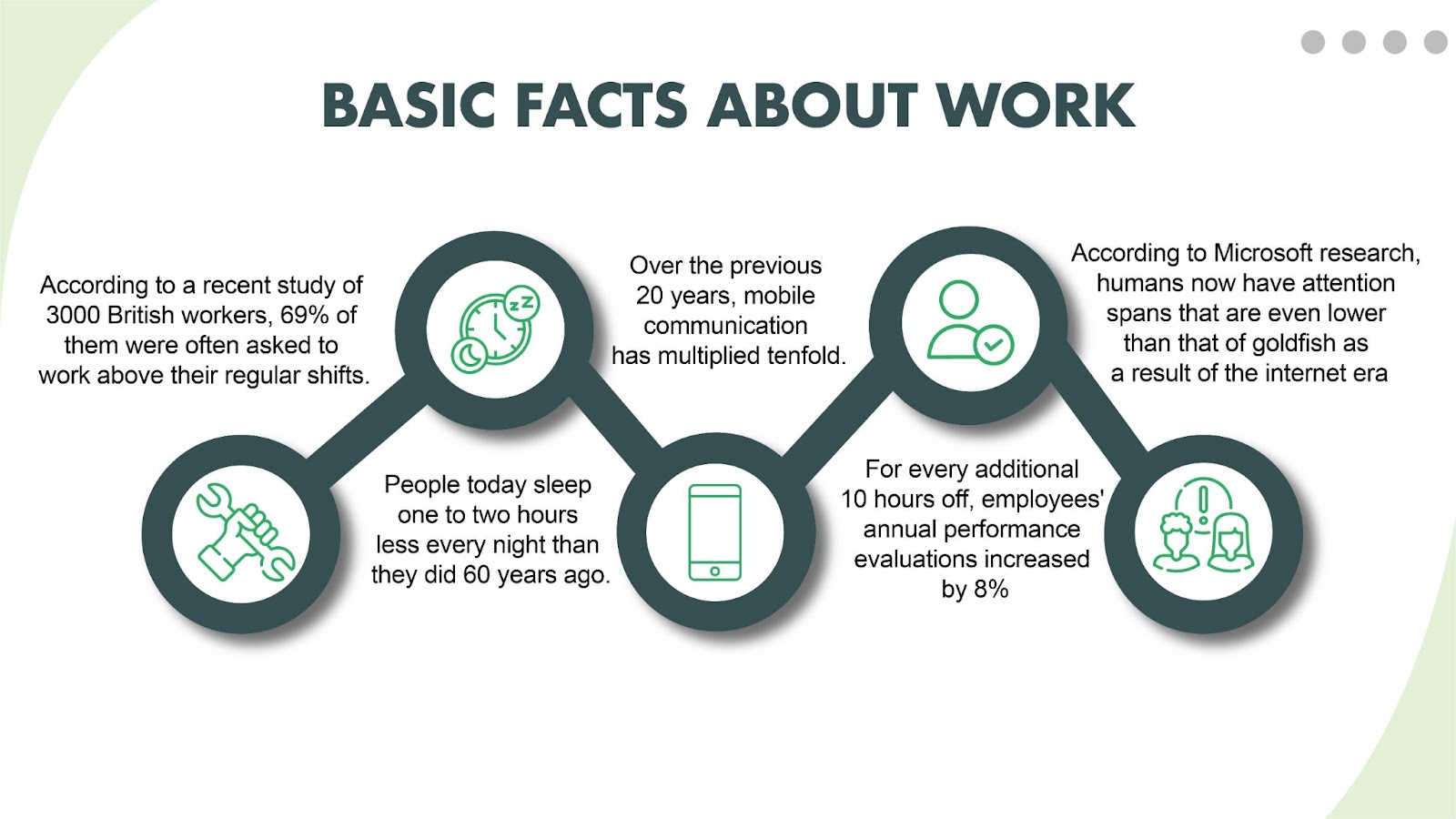5 Ways To Find A Brain Off’s Switch: A Proper Guide

Is a bottle of wine your only way to unwind after a long day at work? Is your mind still running like a steam engine when you go to bed? Do your thoughts about work keep you up at night when you’re trying to sleep? Overwork is becoming increasingly prevalent. Although mobile devices were designed to release us from the office, technology has long since done away with the 9 to 5 workday and replaced it with a 24/7 emotional tie to our desks.
Table of Contents
Feeling brain fatigued?
According to a recent study of 3000 British workers, 69% of them were often asked to work beyond their regular shifts. According to Oxford experts, people today sleep one to two hours less every night than they did 60 years ago. According to Microsoft research, humans now have attention spans that are even lower than that of goldfish as a result of the internet era.

Brain Overload: Why?
Contrary to the proverbial statement that “hard work never killed anybody,” a growing amount of data supports the opposite. Professor Mark Cropley, a renowned psychologist at the University of Surrey who specializes in health and stress, thinks that our failure to keep work and play distinct could have disastrous effects. He cites a study that revealed men who were unable to switch their minds off after work had a threefold increased risk of heart disease and says, “Inadequate psychological healing, or poor disengagement from work, is associated with a range of health problems. Technology is a significant contributor to the issue, and the Japanese have a name for it: karoshi, which means “death from overwork.” Over the previous 20 years, mobile communication has multiplied tenfold. It has two sharp edges. Emails, texts, and phone calls constantly disrupt our lives and keep us connected and unable to unwind. Many of these interruptions are unnecessary. The state of the economy is also to blame. Work harder since we all feel less secure in our employment. Here’s how you can gradually retrain your brain to shut down.
How To Unplug After Work?
According to a 2013 research study of 300 white-collar professionals co-authored, individuals who valued their free time and made time for enjoyable activities were better able to disconnect from their jobs. Also, the accounting firm Ernst & Young found that even though the average employee only takes six days of paid time off per year, their annual performance evaluations went up by 8% for every 10 hours they took off.
Imagine traveling at 160 km/h all day long before pulling into a neighborhood. If you don’t check your speed, you’re going to get into trouble. The same applies to work. Having a “winding down ritual” at the end of the day helps your mind learn how to relax.
Make a to-do list for the next day, clean your desk, and only start tasks that are simple to do during the final 30 minutes.
Your body and mind will eventually start to anticipate winding down.
It’s also important to take frequent breaks during the day since it prevents you from going into overdrive.
Every couple of hours, take a 10-minute break and allow at least 30 minutes for lunch.
And schedule your downtime the same way you schedule your workday.
Your mind will rapidly make the short hop back to work if you simply laze around at home, he claims. Schedule activities: plan to prepare dinner, go out with friends or work in the garden. “If it’s written in the journal, it’s more likely to occur.
How To Shut Down While You Drive
Finding a task that is absolutely unrelated to your work and consumes your mind is the fastest way to change your mental pattern, according to Cropley. “Cycling home is the perfect physical activity for an accountant who stares at a screen for ten hours a day. In a poll of 2500 cyclists that was published last year, 89% stated that riding helped them unwind after a long day at work. According to a 2014 study by the University of East London, people who commute by car are the most agitated and least able to focus.
Even using public transportation, which gives you time to interact with others or read, has been reported to reduce stress levels. Try the 10-minute “body scan” on additional thoughtless modes of transportation : “Inhale deeply, paying attention to the sensations of your chest lifting and air rushing through your nostrils before exhaling. Allow your mind to wander throughout your body, taking in each movement while focusing on the here and now. When a thought enters your head, notice it but then let it flow through your thoughts like a passing cloud.” As you breathe more slowly, your blood pressure will go down, and your muscles will start to relax on their own.
Turning Off Before Dinner
The least relaxing thing you can do to relax your mind is to sit down and watch television. Instead, he suggests finding a restorative space where you may spend 20 minutes and feel at ease, happy, and calm. Cropley explains, “It might be a favorite chair or a spot in the garden. It isn’t necessary for it to be a solitary location. The important thing is that it’s your place to decompress and recharge your coping mechanisms while also purchasing time for reflection.
Short house chores, as long as you don’t often view them as work, can also signal to the brain that you have completed for the day, as can changing into clean clothes and taking a shower as soon as you get home.
A fulfilling hobby diverts us while simultaneously requiring our full concentration without taxing our minds. Make time for a natural interest of yours, whether it is dancing, running, gardening, or reading, “Clapley claims. People who put time into something do better as well as feel happier and less anxious.
How To Turn Off After An Argument
You can stay angry if you suppress your thoughts. To go back to neutral, you must completely process them. According to Cropley, “writing down ideas and feelings is a cathartic practice and reprocesses memories.” You should rip them up and throw them away once you’ve gotten everything out, not let them sit there and stew. Wait until both of you are no longer unhappy before chatting to make up for an argument.
How To Turn Off Before Sleeping
Develop the behavior of making it a practice to turn off your phone or, at the absolute least, your emails after work. The daily barrage of information from texts, emails, and social media eats up cerebral resources and results in “choice fatigue.” Instead of reviewing emails as they arrive, he advises doing so only two or three times per day in organized chunks.
Contrary to popular opinion, writing down your anxieties at midnight might actually stimulate you rather than soothe you. It serves as a subliminal reminder to think about work. Instead, he advises that you develop the ability to “park that notion” by setting up a tight 10 minutes to do so, then deciding to come back to it the following day. If you frequently find yourself waking up in the middle of the night worrying, yoga classes online advise getting up and doing something else, in another room, until you feel tired.
How Our Courses Can Help Turn Off The Brain?
Along with other health objectives, prioritizing your mental health should be at the top of your healthy living agenda. Your brain needs regular rest, just as you would take a break to unplug from the everyday grind.
When you are going through the ups and downs of life, you frequently have a tendency to put off taking care of your mental health with yoga classes online. Your drive, decision-making abilities, memory, and learning have all been found to improve when you give your brain regular pauses.